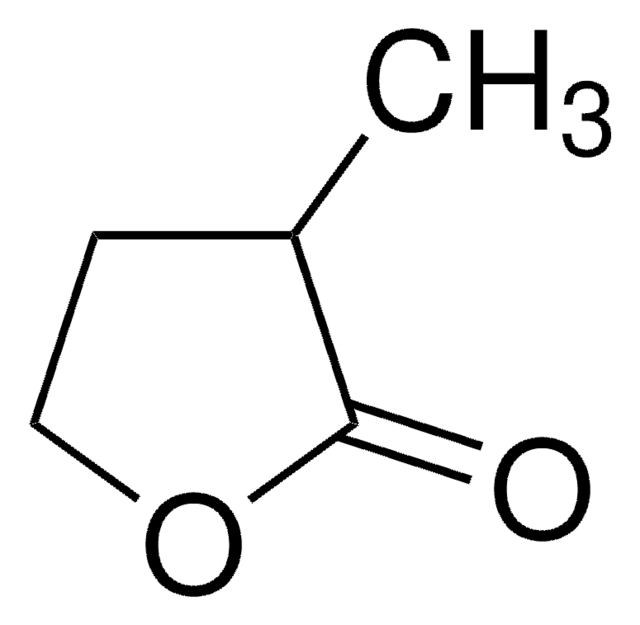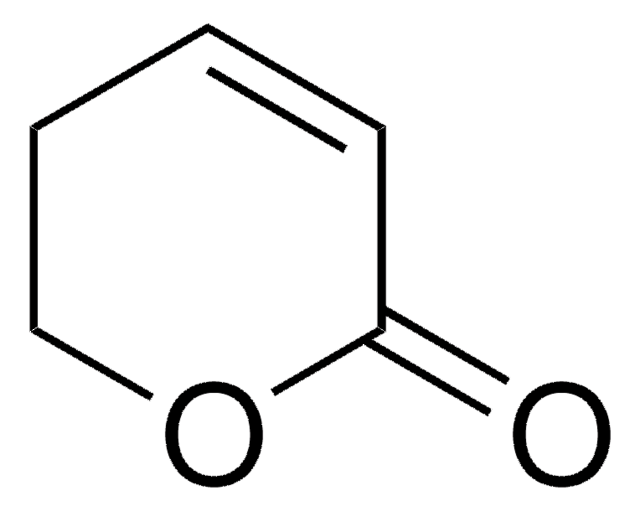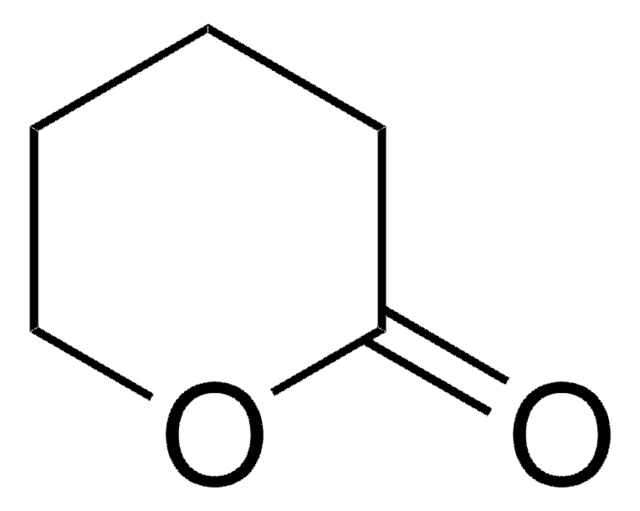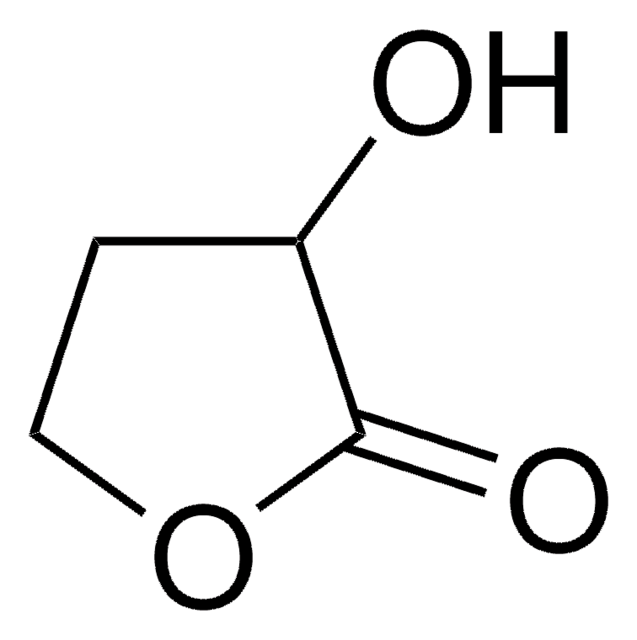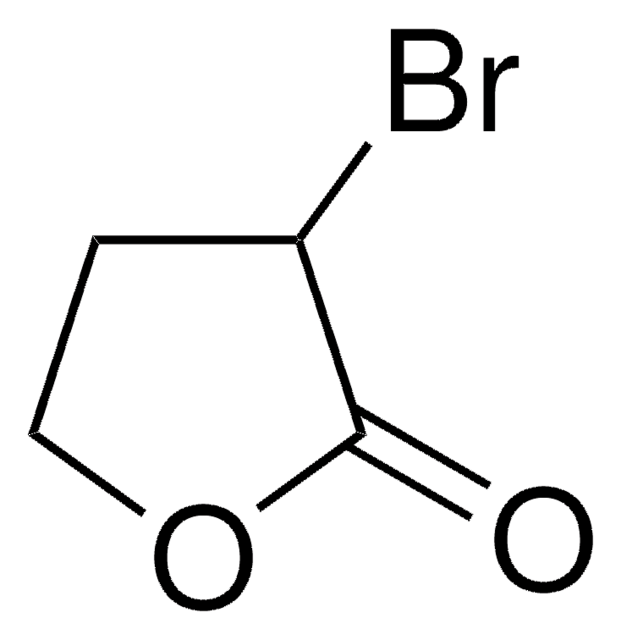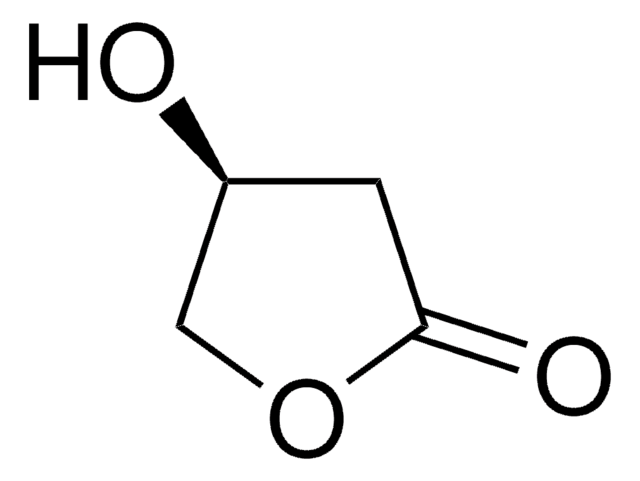226416
α-Methylene-γ-butyrolactone
97%
Synonym(s):
alpha-Methylene-gamma-butyrolactone, 3-Methylenedihydro-2(3H)-furanone, Tulipane
About This Item
Recommended Products
Quality Level
Assay
97%
form
liquid
contains
~2% 2,6-di-tert-butyl-p-cresol as stabilizer
refractive index
n20/D 1.472 (lit.)
bp
86-88 °C/12 mmHg (lit.)
solubility
water: soluble(lit.)
density
1.119 g/mL at 25 °C (lit.)
functional group
ester
storage temp.
2-8°C
SMILES string
C=C1CCOC1=O
InChI
1S/C5H6O2/c1-4-2-3-7-5(4)6/h1-3H2
InChI key
GSLDEZOOOSBFGP-UHFFFAOYSA-N
Looking for similar products? Visit Product Comparison Guide
Application
Signal Word
Warning
Hazard Statements
Precautionary Statements
Hazard Classifications
Aquatic Chronic 3 - Flam. Liq. 3 - Skin Sens. 1
Storage Class Code
3 - Flammable liquids
WGK
WGK 3
Flash Point(F)
98.6 °F - closed cup
Flash Point(C)
37 °C - closed cup
Personal Protective Equipment
Choose from one of the most recent versions:
Already Own This Product?
Find documentation for the products that you have recently purchased in the Document Library.
Customers Also Viewed
Our team of scientists has experience in all areas of research including Life Science, Material Science, Chemical Synthesis, Chromatography, Analytical and many others.
Contact Technical Service
